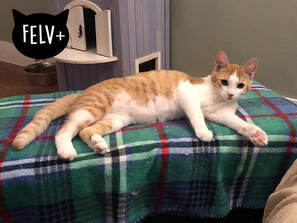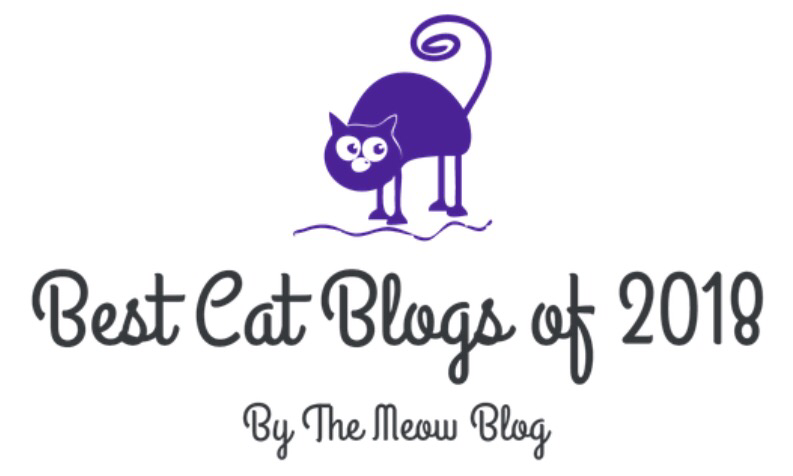
A cat diagnosed with Feline Leukemia (FeLV) is still an ADOPTABLE cat.
What, then, is FeLV?
FeLV is a virus that weakens a cat’s immune system, predisposing it to certain infections, severe anemia, and potentially leading to cancer. Most at risk are kittens born to FeLV positive mothers, cats under the age of one, cats living with an infected cat, and cats bitten by an infected cat if they’re allowed outside.
Although it is NOT transmittable to humans, dogs or other non-feline pets, before adopting a FeLV positive cat, ensure that you and your vet are “on the same page”. Whereas some vets warn against it, others are fully sympathetic and supportive of the idea. And these vets will be your best allies.
Of utmost importance, when adopting a FeLV positive cat, is to always keep that cat indoors -- whether as your only cat or with other FeLV positive cats. Immediate spaying will prevent a female from giving birth to infected kittens. Some cats can even fight off the virus and become immune to it. Others can be healthy carriers that never get sick themselves but can still infect others.
While the disease CAN be managed, even going into remission, flare-ups are always a possibility. Most FeLV positive cats are likely to live a shorter life than other cats, and 85% of persistently infected felines will die within three years of diagnosis.
However, regular vet check-ups and good preventive health care can keep your cat feeling well for some time and protect it from secondary infections. Twice-yearly physical exams, lab tests and parasite control can both prevent complications and identify problems quickly. While there may be no cure for the virus itself, secondary infections can be treated promptly if and when they occur.
To help your FeLV positive cat live as healthily and normally as possible:
Feed your cat a balanced diet (no raw meat, eggs or non-pasteurized dairy products that can harbor bacteria and parasites and lead to infection), using only the highest quality food to provide your cat with all required and essential nutrients. Some vets also recommend adding daily doses of vitamins and antioxidants.
Remove all uneaten wet food within a half-hour to prevent the potential growth of harmful bacteria.
Ensure that your cat has easy access to a continuous supply of FRESH water.
Keep your cat’s purr-sonal “belongings” scrupulously clean, including food and water bowls, litter boxes and cat beds, blankets, towels and toys.
Because your cat may require more warmth than other cats, ensure that a comfy cozy place, equipped with a cat bed and blankets, is always nearby.
Maintain as stress free an environment as you can. Be alert to whatever frightens or agitates your cat, and if possible, eliminate it. Ask your family members and any visitors to speak in low voices when inside your home.
Check regularly for parasites, including fleas, ticks, ear mites and worms. Treat the offender promptly, but if there’s more than one culprit, treat each separately to avoid overtaxing your cat’s already delicate system.
Ask your vet for a list of physical and emotional changes vis-a-vis progression of the disease, and contact him/her immediately if you notice any of these changes in your cat.
And so, despite the fact that a FeLV positive cat may not use up all of its fabled nine lives, living a loved, pampered and protected one may be just what the vet ordered.









 RSS Feed
RSS Feed